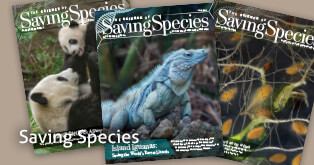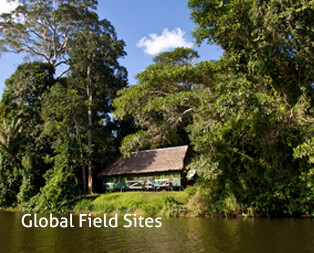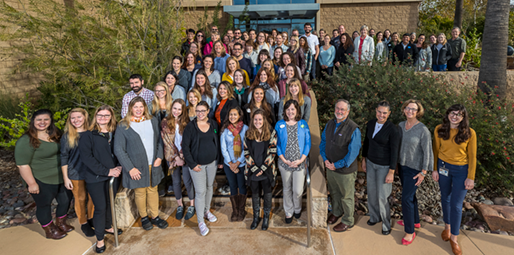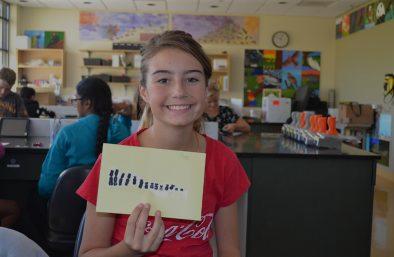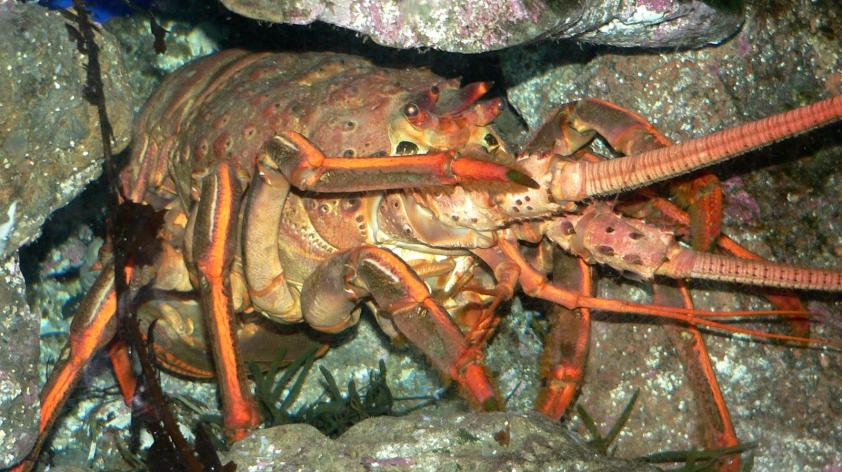
A Fishy Predicament
La Jolla, California. A spot for beautiful coastal views, hot local coffee, and an awesome surf break for those brave enough to climb over the rocks. Who knew this would also be a hotbed of illegal activity?
The South La Jolla State Marine Reserve is a marine protected area (MPA) established back in 2012 as an expansion of California’s network of MPAs under the Marine Life Protection Act (MLPA). The MLPA has created a network of 124 MPAs across the state of California, from border to border, aiming to protect the diversity and abundance of marine life, the habitats they depend on, and the integrity of marine ecosystems.
These areas allow species like California Spiny Lobster (Panulirus interruptus), Kelp Bass (Paralabrax clathratus), and Giant Black Sea Bass (Stereolepsis gigas)to breed and grow without fear of exploitation. These MPAs also increase local fish stocks through “spillover,” in which the populations growing inside the protected area will overflow into adjacent areas. Notwithstanding these conservation goals, illegal poaching has become a rampant issue in these areas, despite their protected status.
This past fall I was lucky enough to complete an internship with WILDCOAST as part of my graduate coursework through the Advanced Inquiry Program. WILDCOAST is aninternational team working to conserve coastal and marine ecosystems and wildlife. They are working towards conserving, restoring, and protecting marine wildlife and ecosystems for future generations. I was happy to be working with them in order to do my part for local marine life, and as a recreational fisherman, this conservation work can help ensure that I can continue my hobby throughout my lifetime.
During my internship, my primary role was working with WILDCOAST’s MPA enforcement and compliance committee. WILDCOAST is trying to improve MPA compliance by collecting data for enforcement.
Using a spotting scope, I would conduct vessel observation in the South La Jolla State Marine Reserve with intention of locating and identifying potential poachers and illegal fishing activity. These shore-based observations were conducted during hours of expected heightened illegal activity.
Out of the 38 days the task force held stakeouts, we witnessed potential poaching violations on 25 days with a total of 64 violations. This number is jaw-dropping considering that the California Department of Fish and Wildlife (CDFW) only reported 72 violations at the South La Jolla State Marine Reserve between 2012 and 2015.
Based on our data, we assume that a greater number of violations occurred on days we did not have eyes on the MPA.
It is thought that poaching of marine life persists for two big reasons: a perceived lack of deterrence and a lack of severe punishment. A lack of deterrence can definitely be seen in La Jolla.
Despite reporting every single poaching violation that we witnessed, CDFW wardens only had the ability to respond to a few incidents we witnessed. Part of this can be attributed to infrastructure issues. The CDFW does not have staffing capacity and availability to adequately cover marine specific areas and issues. Frankly, they are just spread too thin. And unless issues like this are resolved, poaching is likely to persist in California marine protected areas. This does, however, create potential for partnerships to enhance compliance of MPA laws.
Alternatively, the second issue regarding punishment is being addressed. In the past, penalties for poaching violations were light, and in the case of commercial poaching cases, costs could easily be absorbed when the profit made off of illegal harvest was much greater. This was an obvious disparity when compared to violations for terrestrial poaching. WILDCOAST worked with state legislators in 2018 to create and pass Assembly Bill 2369. This bill increases the penalties for marine poaching violations to bring them more in line with the penalties seen in terrestrial cases. These new laws will hopefully act as a better deterrent for poaching in marine protected areas
Accidental poaching, when the person doesn’t know or realize what they are doing is illegal, is also still a problem plaguing our local MPAs. Many of the MPAs in California were only established very recently, and many fishermen are still unaware of the boundaries. WILDCOAST combats this issue by outreach with the local fishing community and providing handy guides that outline the boundaries and regulations.
The work that groups like WILDCOAST do is invaluable to the goals of marine conservation. It is my hope that some of work I did during my internship will aid WILDCOAST, the CADFW, and their collaborators in making a true impact in eliminating the issue of poaching in our marine protected areas.
Joseph Boucree, AIP Student, Miami University & San Diego Zoo Global



